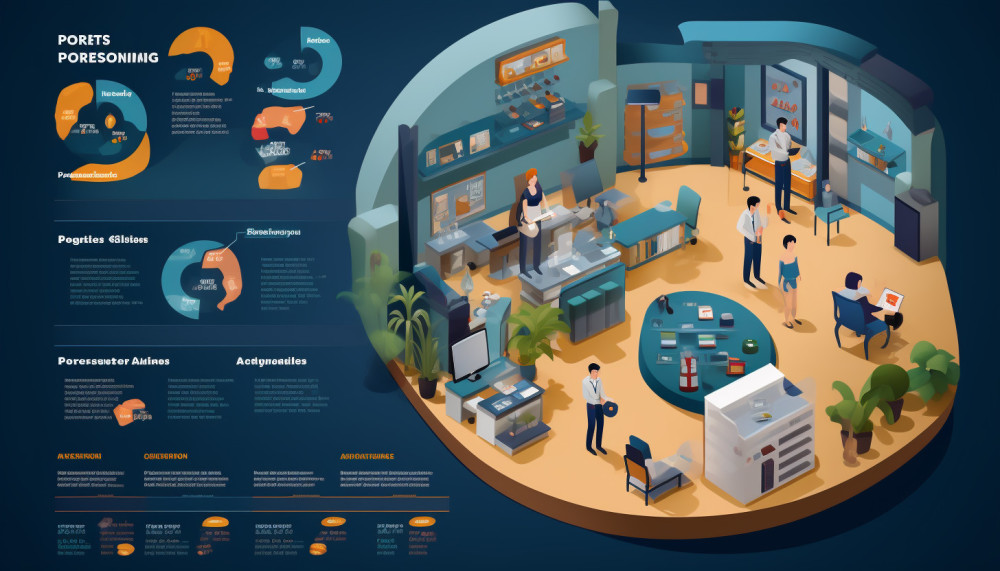For a research site to be effective, there needs to be a steady stream of clinical trials. Many independent websites have been in operation for years and have developed strong relationships with sponsors and CRO. Some websites are newer and are not yet well known or accepted in the industry. Working with an established clinical research network can be very helpful for all sites.
What benefits can be expected from working with a clinical research network ?
An experienced clinical research network will be able to suggest studies that your site may not be aware of. In fact, sponsors or CRO may not give sufficient consideration to some of these studies. This makes it all the more important to look at clinical trials more frequently to better tailor them. This increases the number of study opportunities for your site and will be profitable for your company. One of the key features is the ability to negotiate budgets and CTAs on behalf of your site. A large network will be able to negotiate more attractive search budgets than your site could on its own, as many sites work with it. Your site can leverage the network's breadth and reach when negotiating with a sponsor or CRO to get a better deal for you.
What are the drawbacks of working with a clinical research network ?
The costs associated with using a research network are the main drawback for some websites. Some networks require a monthly membership fee in exchange for a set amount of study leads each month. This organizational structure is more typical of "broker" type networks, which simply offer leads and let the website handle the rest. There is a commission fee for each search approved by other networks. Depending on the network, these fees can range from 8% to 20% of the value of the study. While the expense associated with this arrangement may seem exorbitant for some websites, it also has the advantage of not charging the network up front, whether the research is approved or not.
Similar articles

Unconventional French Cuisines: A Foodie's Travel Guide

Why do foreigners have to pay the Visitax before traveling to Mexico ?

Fashion: reasons to buy a woman's backpack

VR porn games : what you need to know ?

Primasia: What is the register of significant controllers?

What are the steps to start astronomical photography?

How to extend the life of your battery?

Pokémon Scarlet and Violet : Obtain the Cortondo Gym badge

All about the Lead generation

Why invest in luxury real estate?

Why have sex every day?

Why choose the game Aviator?

Timelapse Shots, We Tell You Everything

Why opt for the digital transformation of your company ?

Staking of cryptocurrencies : all about how it works

What are the benefits of handpan vibrations?

Some examples of kpis to follow in a corporate call center

3 good reasons to think about securing your site

Comment rejoindre la communauté Crunchbase ?

Obtaining the passenger location form online

What about the expansion of video marketing after COVID 19 ?

The sexual libertinage in couple

The essentials to know about ICP charging

Relationship between the amount of fat and bodybuilding exercises

What is the purpose of a washbasin in a bathroom ?

Hiring a sales company for a web design agency

How to install a bathroom mirror?

Some precautions to take when finding a lost cat

What is the importance of an e-commerce marketing agency?

The amount of protein for good health

Designing a small bathroom: how do you go about it?

Why choose Facebook affiliate marketing?

How to help a lost cat find its way home

What should I know about search engine optimization ?

Some tips to relieve stressful moments

How to successfully organize a birthday party for children ?

Why not compare the Bible and the Koran?

What is the budget to install a furniture in a bathroom?

How to repair the deck of your house?

What types of wood stoves to choose for a used purchase?

The Nikkei 225: what should you know about it?

How to successfully customize the iframe of a timelapse project?

What you need to know about Snapchat's night mode

What are the main types of pretzels?

What can we know about the Namaste greeting?

The Role of a wedding planner on a successful wedding

The criteria for choosing your VoIP telephony

All about the mail checker

Is a home automation sensor a real?

Sportify: over 35,000 accounts hacked by hackers

How to know that your mattress is good for your health

What are the health risks of kratom?

The brain: how to improve its performance?

